Stand For the Filipino
By
Tito Guingona
Under the Visiting Forces Agreement, custody of any United States personnel over whom the Philippines is to exercise jurisdiction shall immediately reside with US military authorities if they so request. But this does not mean that the warrant of arrest should not be served on said personnel . For the warrant issued by our courts after probable cause symbolizes the commencement of jurisdiction and the recognition of the same by the respondents. The inequity of denying service of warrant will aggravate further should the motion to include the Filipino driver in the case be granted – where we must then serve a warrant against him after having been starkly denied the Americans in the same case. The information and the warrant of arrest serve as the basis for arraignment and future trial, not the say so of US military authorities. And under our constitution section 5 Article V111, it is the Supreme Court who promulgates rules of procedure, not the VFA. As far as I know Rules on Warrants of Arrest have not been amended.
An American statesman once said “we formulate foreign policy to serve our own interests, but we expect others to act for the protection of their own. Thru diplomacy and diligence we hope to attain agreements that in soul and essence will prove beneficial to the parties concerned.” Article VI of the Visiting Forces Agreement provides for just compensation yet negates it in jurisdiction. Let us say that an American serviceman driving a tank in the course of joint exercises kills a civilian and destroys his humble residence. A duty certificate is issued by the US commander and criminal jurisdiction is vested with the United States. The heirs deserve civil compensation, especially because they are poor. They cannot file a claim against the US serviceman because of the duty certificate. They cannot file a claim against the US government here because the US has not waived sovereign immunity from suit. They can only file against the US government in the United States in accordance with US law. The venue is therefore changed. The heirs are Filipinos yet they cannot file claims for losses in their own land. Thy can only file in the US, far away, under a foreign law. How will they go there when they cannot afford? How will they cope with the intricacies involved in a foreign claim? How will they pay for foreign lawyers whose services tick by the hour? In the case of Hoechst Philippines vs. Torres, 83 SCRA 279 our Supreme Court no less declared that a change in venue which makes it virtually impossible for a poor litigant to go to court may be declared contrary to public policy.
Yet many nations waive sovereign immunity. In l983 Australia waived its sovereign immunity here when their forces participated in “Exercise Cope Thunder 83 -5”, thereby giving consent to be sued by Filipino claimants in Philippine courts for damages caused by acts of Australian military forces or their civilian components n the course of military exercises.
Should Congress decide to review the present Visiting Forces Agreement perhaps they can cover not only the inequities in the Agreement itself, but also other agreements which should have been sent to the senate for concurrence. Not all international or bilateral agreements are mandated for concurrence by the senate. Executive Agreements that merely implement an existing law or detail an established policy need no such concurrence. Our government has entered into a number of agreements that do not fall under this category. But they have not been submitted to the senate. Why?
In l998 representatives of many nations including the Philippines met in Rome to create an International Criminal Court of Justice for the purpose of trying those who commit crimes against humanity, genocide, and war crimes. It became effective in 2002 after the ratification by participating nations reached the required number.The Philippines was a signatory to the Rome Statute; but the papers for approval have not been sent to the senate. Why?
Is it because the US has chosen not to be a party to that international treaty? It appears so – because their own law, The Patriot Act, says the US will desist from giving aid and benefits to nations who become parties to the – it also entered into a no surrender agreement with the US. On May 9, 2003 then Secretary Blas F. Ople wrote a letter to the US which embodies the terms of said agreement .Let us say that in the course of joint RP-US military exercises, abuses like torture and war crimes are committed by certain government officials, employees including contractors, military personnel, or nationals of either party. A complaint is filed with the International Criminal Court of Justice against them and the Court decides to take appropriate action, but that road is now blocked by the agreement that binds either the Philippine and American governments not to surrender the persons cited without the consent of the other. In other words, an American serviceman so accused cannot be surrendered to that International Court without our consent just as a Filipino soldier cannot be turned over without the consent of the US. Whatever the merits – the pertinent papers covering the Rome Statute and the No Surrender agreement should have been sent to the senate as required by the constitution. It is incumbent for the government, not just the Executive to decide.
Finally, there exists a Mutual Logistics Support Agreement signed on November 21, 2002 by the Department of national Defense represented by Commodore Ernesto de Leon and the US Department of Defense represented by Col. Mathias R. Velasco binding the parties to give support to construction of facilities like seaports pursuant to the Mutual Defense Treaty and the Visiting Forces Agreement.

JULY 4, 2008
VIDEO CLIP- VPTG SPEECH AT CENPEG'S CONFEST
MESSAGE BOARD
> New Video Presentation. Pictures taken during the launching.
>The "Fight for the Filipino" Book Launching was a huge success. Thanks to all your support!
> The book will be available in National Book Store. you may place your order thru their website. www.nationalbookstore.com
>The Academic Publishing Co. also accepts order and they deliver. Call 9125966. Look for Ms. Lani.
FIGHT FOR THE FILIPINO!
an autobigraphy of Tito Guingona
>The "Fight for the Filipino" Book Launching was a huge success. Thanks to all your support!
> The book will be available in National Book Store. you may place your order thru their website. www.nationalbookstore.com
>The Academic Publishing Co. also accepts order and they deliver. Call 9125966. Look for Ms. Lani.
FIGHT FOR THE FILIPINO!
an autobigraphy of Tito Guingona
VIDEO PRESENTATION
Book Review on "Fight for the Filipino"
Patriot and Activist
By
Carmen Guerrero Nakpil
Only a man “with soul so dead”, wrote the English poet, does not love his native land. All of us claim to love our country. But few love it and its people with the passionate activism and militancy of Teofisto Guingona, Jr. His autobiography, “Fight for the Filipino” is a treatise on patriotism.
In different form and roles, Tito Guingona has been a constant presence in our national life. At different times, he has been a member of the 1971 Constitutional Convention, Chairman of the Commission on Audit, member of the Philippine Senate, Executive Secretary and Secretary of both of Foreign Affairs and of Justice, Vice President of the Republic and Ambassador to the People’s Republic of China. But those are only his formal titles. And, outside of our knowledge of civics and government positions, they tell us very little about Tito Guingona’s total commitment or emotional dynamism. For instance, it is only the last chapter of his 346-page biography that we learn of his latest entitlement to a charge of rebellion earned one afternoon, at the Manila Peninsula Hotel, where he was tear-gassed, arrested, handcuffed and detained.
His saga of fighting for the Filipino begins when he was a 12-year old boy who tagged along on the historic trek taken by President Quezon, his family and some members of his family, including Tito’s father, Commissioner for Mindanao and Sulu, Guingona from Northern Lanao to Bukidnon on the way to Australia in 1942.
It runs through, in vivid detail, through his years as a young student and a neophyte lawyer’s advocacy against the Parity Agreement and the U.S. Military Bases; through his stint in the making of the 1973 Constitution with concomitant arrest and detention during Martial Law; his colorful experiences with Mindanao and Manila partisan politics; his travails and policy differences in the cabinet; his frequent denunciations of anti-Filipino policies and projects; and lastly, his denunciation of a sitting President which caused a regime change.
But I must allow the readers of “Fight for the Filipino”, to discover for themselves the intriguing bits of Philippine history that Tito Guingona describes in the fast-paced, candid, conversational prose of his memoirs. For instance, the incident that happened, only four days after Gloria Arroyo’s take over of Malacañang in 2001, when the new Secretary of Justice, Hernando Perez, whispered in his ear in Tagalog, “She phoned me at midnight to order me to sign the IMPSA contract.” (an anomalous Argentinean contract which President Joseph Estrada had refused to sign because of its sovereign guarantee clause)
There are many other anecdotes and vignettes in this autobiography which makes it, more than intimate personal history, a history of the Philippines and a record of the events and personages of the last 80 years. It is also a manual for the younger generations on how to honor, love and defend this country and its people. There are few better teachers of patriotism than Teofisto (Tito) Guingona, Jr.
Story-telling – the Guingona Way
by
Eggie Apostol
Teofisto Guingona, Jr., one-time Vice-President of the Philippines has many stories to tell. And he tells them in great detail in his book “Fight for the Filipinos”
The stories are so highly detailed that one suspects Tito Guingona keeps a diary. Does he? I have not been able to ask him.
If he doesn’t, then we can only say he has a fantastic memory. And it is just as well for the telling of his life is like a recollection of our nation’s history.
Focus is, of course, on Mindanao – where his own father like him served as senator and later Commissioner for Mindanao and Sulu.
For those who lived all their lives in Luzon (or in the Visayas for that matter) the goings-on in Mindanao are like happenings in a foreign country. Because the country is mostly Christian but Mindanao has a sizeable number of Muslims (nine thousand about 50 years ago) mostly due to its proximity to Borneo and Indonesia.
One cannot help but envy the Guingona family for growing-up in the most beautiful part of the country – the Lake Lanao area.
This was so beautiful that when President Quezon saw it he asked that a branch of the Manila Hotel be built there. Which was done.
Although his family was anchored in Mindanao, Guingona studied in the Ateneo de Manila so that later in life he hobnobbed with Raul Manglapus, Diosdado Macapagal, Joe Calderon and Caesar Espiritu, Carlos Garcia and Jun Puyat. When problems came up about the Mindanao area he was always the Mindanao expert for solutions.
Guingona relates during Marcos’ martial rule:”one evening over a secretive dinner, where Fathers Horacio de la Costa and Jaime Bulatao were present, one of our conservative members of the group said: “The real response to martial rule is rebellion, but I’d like to know from our religious Fathers here – whether rebellion is morally justified?” The question was a riser; it was not said in a jest, and one of the priests curtly replied “Don’t worry, we’ll find a way to justify it.” That broke the ice and resulted in laughter.
Guingona’s life had its share of ironies. Before EDSA I he joined Cory in boycotting products linked to Malacañan, “I challenge the crowd not to pay their Meralco bill. Seven days later after our victory with Cory she appointed me president of Meralco. So I called for another big meeting and told the people ”Times have changed – pay your Meralco bills!”
Guingona liked to encourage better relations with Chinese in the Philippines. He submitted some suggestions: 1) Enhance herbal medicine in the Philippines, with Chinese help 2) Plant cassava or cash crops between spaces of coconut trees. 3) generates jobs by adopting the policy of giving value added to native products 4) Encourage technology connected to giving added value to coconut, fruits and fish; 5) encourage tourism by building necessary infrastructures 6) implement joint economic ventures.
Readers will be reminded that Guingona was a political activist from the start. When he was made Chairman of the Commission on Audit he was also a peace negotiator. When President Ramos made him executive secretary he grappled with the ADC and Jai Alai and the Flor Contemplacion case. He actively joined the fight for justice in the Vizconde massacre, the Jalosjos case, the Fr. Shay Cullen problem, the Maysilo Estate case, the Alfredo Tiongco case, U.S. property claim in Fort Bonifacio, the Textbook scam, the Visiting Forces Agreement, the WTO and GATT.
As Vice-President and Secretary of Foreign Affairs he was involved in 9/11 and the VFA, the IMPSA controversy, concern for the OFW’s and attending to foreign travel commitments. He differed with Malacañang in in pursuing OFW and Steel mill programs. He said No to Bush’s war in Iraq.
At book’s end, Guingona is very much in a negative mode: He sees in the Gloria Arroyo regime much that he finds dishonest. He had been asked by President Arroyo to become the new Ambassador to China which he accepted.
But the “Hello Garci” tapes was unraveled and proved that President Arroyo had tampered with the elections. Guingona did not want to continue with his new assignment and resigned.
“We must reform” is his current and latest plan.
INVITATION
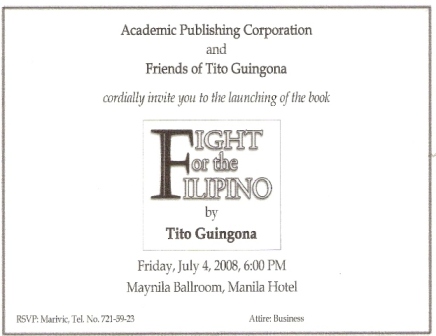
BOOK

Pls. call us for resevation.
BOOKS
THE GALLANT FILIPINO
A nation is poorer by so much everytime one of its heroes passes into oblivion. For as Tito Guingona, Jr. writes "the true treasures of the Filipino are not gold or silver" They are the men and women whose heroic lives would bring back to us in a book. And so Tito Guingona has written The Gallant Filipino...
LABAN - VOICE OF RESISTANCE
On Sept. 21, 1972 Ferdinand E. Marcos imposed martial rule in the Philippines. It marked the beginning of a black chapter in the nation's story. On Aug. 21, 1983 they killed Benigno S. Aquino. His death inflamed the nation, and it marked the beginning of the end for Mr. Marcos. From then on the people demanded back their rights. they rallied. they marched. They defied the guns and tanks and bullets of the dictator - in the end, they defended the soldiers who rose in revolution. In that crucial hour, the nation triumphed...
FACE THE CHALLENGE
To the small Filipino businessman - whose continuing strife to survive deserves sustained support. May he eventually succeed - if not under the present economic system - then in another more responsive to the nation's needs!
A nation is poorer by so much everytime one of its heroes passes into oblivion. For as Tito Guingona, Jr. writes "the true treasures of the Filipino are not gold or silver" They are the men and women whose heroic lives would bring back to us in a book. And so Tito Guingona has written The Gallant Filipino...
LABAN - VOICE OF RESISTANCE
On Sept. 21, 1972 Ferdinand E. Marcos imposed martial rule in the Philippines. It marked the beginning of a black chapter in the nation's story. On Aug. 21, 1983 they killed Benigno S. Aquino. His death inflamed the nation, and it marked the beginning of the end for Mr. Marcos. From then on the people demanded back their rights. they rallied. they marched. They defied the guns and tanks and bullets of the dictator - in the end, they defended the soldiers who rose in revolution. In that crucial hour, the nation triumphed...
FACE THE CHALLENGE
To the small Filipino businessman - whose continuing strife to survive deserves sustained support. May he eventually succeed - if not under the present economic system - then in another more responsive to the nation's needs!
Vice President
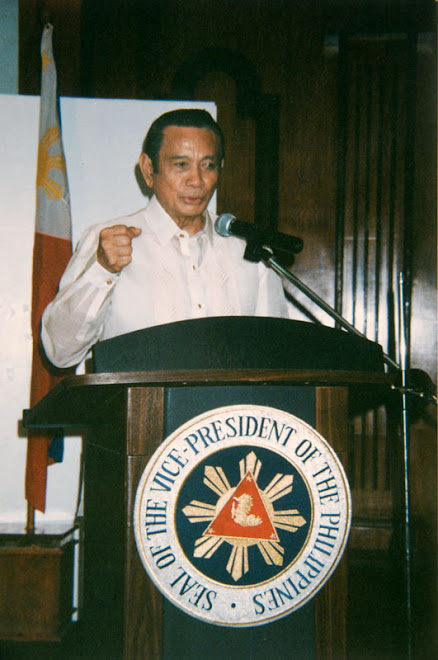
Tito Profile
Teofisto T. Guingona, Jr. reached a new high in his stellar career when both Houses of Congress confirmed his nomination as Vice President of the Philippines by President Gloria Macapagal Arroyo.
Born in San Juan, Rizal on July 4, 1928 to Teofisto Guingona, Sr., a former assemblyman, senator, judge and commissioner from Guimaras, Iloilo and Josefa Tayko of Siaton, Negros Oriental, he grew up in Mindanao where he completed his elementary schooling with honors in Ateneo de Cagayan.
He pursued his studies at the Ateneo de Manila University as a working student, teaching history and political science while taking up courses in law and economics. He took up special studies in Public Administration, Economics, Sociology and Audit. After graduation, Tito went into business and became a Governor of the Development Bank of the Philippines and President of the Chamber of Commerce of the Philippines.
Tito was a delegate to the 1971 Constitutional Convention and when Martial Law was declared in 1972, he staunchly resisted the abuses of the regime, serving as a human rights lawyer and defender of the oppressed. He founded SANDATA and became the honorary chairman of BANDILA, two mass-based organizations dedicated to social and economic reforms. Because of his opposition to martial rule he was jailed twice, first in 1972 and then in 1978.
When the dictator was ousted, the new President appointed Tito as Chairman of the Commission on Audit where he gained renown as a no-nonsense graft buster. He did not stay long in the Commission on Audit, however, for he was drafted to run for a Senate seat. In the Senate, Tito was Senate President Pro-tempore and Majority Leader. He also chaired the Blue Ribbon Committee.
Tito’s concern for the welfare of his kababayans in Mindanao is apparent when he served as director and chairman of the Mindanao Development Authority and the Mindanao Labor Management Advisory Council respectively.
Born in San Juan, Rizal on July 4, 1928 to Teofisto Guingona, Sr., a former assemblyman, senator, judge and commissioner from Guimaras, Iloilo and Josefa Tayko of Siaton, Negros Oriental, he grew up in Mindanao where he completed his elementary schooling with honors in Ateneo de Cagayan.
He pursued his studies at the Ateneo de Manila University as a working student, teaching history and political science while taking up courses in law and economics. He took up special studies in Public Administration, Economics, Sociology and Audit. After graduation, Tito went into business and became a Governor of the Development Bank of the Philippines and President of the Chamber of Commerce of the Philippines.
Tito was a delegate to the 1971 Constitutional Convention and when Martial Law was declared in 1972, he staunchly resisted the abuses of the regime, serving as a human rights lawyer and defender of the oppressed. He founded SANDATA and became the honorary chairman of BANDILA, two mass-based organizations dedicated to social and economic reforms. Because of his opposition to martial rule he was jailed twice, first in 1972 and then in 1978.
When the dictator was ousted, the new President appointed Tito as Chairman of the Commission on Audit where he gained renown as a no-nonsense graft buster. He did not stay long in the Commission on Audit, however, for he was drafted to run for a Senate seat. In the Senate, Tito was Senate President Pro-tempore and Majority Leader. He also chaired the Blue Ribbon Committee.
Tito’s concern for the welfare of his kababayans in Mindanao is apparent when he served as director and chairman of the Mindanao Development Authority and the Mindanao Labor Management Advisory Council respectively.

the senator at work
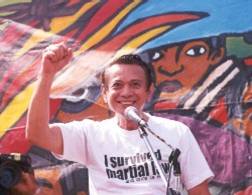
i survived martial law
Anti GMA Rally
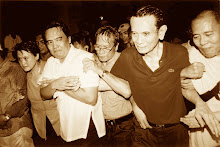
Water Canonized by the Police
About the Peninsula Seige/ An Interview with Karen Davila
Friday, April 18, 2008
Subscribe to:
Post Comments (Atom)



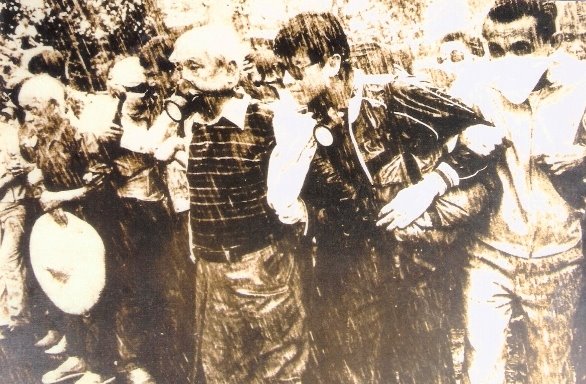

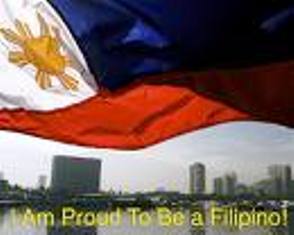
No comments:
Post a Comment